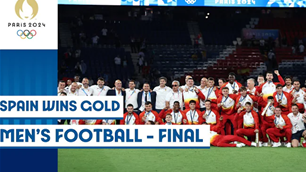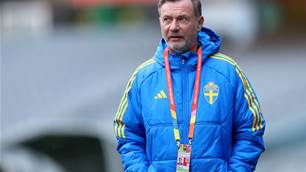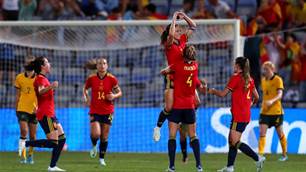SPAIN, long regarded as one of sport's great chokers, finally showed themselves to be winners at last.

Divided in the past by history, geography and politics, this Spanish generation united to conquer Europe, and thanks in no small way to their Premier League duo of Fernando Torres and Cesc Fabregas.
For Germany, who had performed heroics to reach the final, simply could not match Spain's breathtaking passing game and indeed were fortunate to lose by just the single goal.
Spain's 1-0 triumph meant that the best major tournament there has been in years was won by the best team, and for that all neutrals should be grateful.
Previous Spanish sides have been dogged by division, with Catalans and Basques viewed, often unfairly, as being insufficiently committed to the national cause.
This time it has been different and throughout Euro 2008 what has epitomised Spain is a style that has been so team-oriented that it is virtually impossible to choose the outstanding player.
Xavi probably nicks that title ahead of Senna and Fabregas merely because of his leadership and man-of-the-match contribution to the final victory.
This was no walkover though, far from it. Germany came out of the starting blocks like a unstoppable train and utterly dominated the opening exchanges.
Spain, who had been bewildering opponents with possession football and brilliant passing all tournament, just could not get the ball. Fear looked to be the paralysing them while Germany, with Michael Ballack imperious, oozed Teutonic confidence.
Sergio Ramos was the first rabbit to freeze in the floodlights of Vienna's Ernst-Happel Stadion, rolling a dreadful pass across the back-line that was seized on by Miroslav Klose. A slight bobble held up his surge towards goal and that delay allowed Carles Puyol to stretch out a desperate leg and poke the ball out for a corner.
That was not the end of the pain for Spain though. Ballack skinned Puyol and fired in a dangerous ball across goal, then Thomas Hitzlsperger found himself in acres of space on the edge of the Spanish area but hit a woefully tame shot.
Germany are normally such a clinical side, and such was the magnitude of those let-offs, that one sensed that Ballack and his men had missed their chance.
Sure enough, after 20 minutes the pendulum swung towards the Spaniards and never swung back again.
Jens Lehmann was called on to produced a marvellous diving save after Christoph Metzelder directed Andres Iniesta's cross towards his own net.
Fabregas, producing the unexpected, feinted to cross but cut back for Ramos instead and Torres did superbly to hang in the air above Mertesacker and direct a header that beat Lehmann but thumped back off the post.
When the goal did come it was one that perhaps only Torres, out of all the players on the pitch, could have scored. Xavi, outstanding throughout, hit the killer pass and Torres left scorch marks in the turf as he burned past Philipp Lahm - and he is no slouch - before lifting the ball over the sliding Lehmann and into the net.
From then on opportunities for Spain rolled off a conveyor belt, and the only worry was that they did not take full advantage.
Lehmann, certainly Germany's best player on the night, pulled off a tremendous tip over from Ramos' header; Iniesta had a thunderous drive cleared off line by Frings; Senna, another hero of the campaign, came within inches of sealing it from Daniel Guiza's knock-down.
Still the security of a second goal would not arrive and there was one more terrifying moment when Schweinsteiger was denied a goal for a foul on Capdevila, and Spain, after 44 years of waiting, were champions.
Vienna is famous throughout the world for its Spanish riding school. For Spaniards, now, Vienna will always mean something else too: the city where they proved themselves to be winners.

Copyright (c) Press Association
Related Articles

Spain complete golden summer with victory over France

Spain, Sweden set for high pressure World Cup semi













